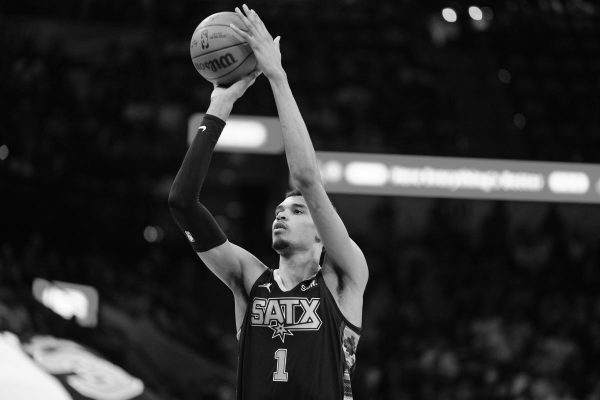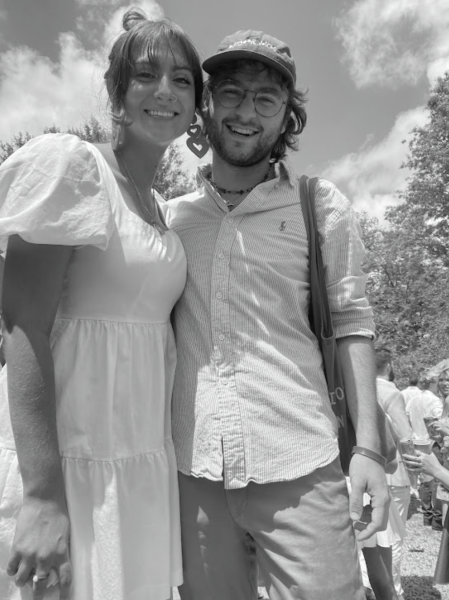Athletics Welcome New ObieSafe Guidelines
Now that ObieSafe guidelines have changed for the summer semester, sports practices and team culture will look a little different. With no masks, no pods, and the majority of students vaccinated, second and third-year athletes on campus are slowly adjusting back to “normal.”
College second-year women’s soccer player, Camille Franklin, is excited to be back on campus with her team and says the no mask rule truly is a game changer.
“Without the masks, I’ll be able to be more open this semester. It will be a lot easier to meet new people and not be afraid to talk to people I don’t know,” Franklin says.
Head Softball Coach Sara Schoenhoft says that she has been anticipating welcoming her second-years back to campus.
“It was so tough playing games without our full squad this spring, both because they are very talented and could have helped us win, but also because we had worked so hard on our team chemistry prior to COVID, and we didn’t feel complete without our six sophomores,” she said.
Schoenhoft’s team will only have six athletes on the team this summer — four second-years and two third-years — so they will train individual skills and work to get ready for the fall when the whole squad returns.
She also believes it will be nice to unmask at practices this semester. While the masks kept athletes and coaches safe this past year, they also made communication for Schoenhoft and her players very difficult.
“Especially on the softball field where the infield is trying to talk to the outfield and I’m trying to give coaching points to the outfield when I’m at home plate,” she said.
Director of Track and Field and Cross Country Ray Appenheimer is also eager to see second-years back on campus and is very excited to see his players smile without masks. He says that you can already feel that the energy in the athletics building has been better for no other reason than being able to see each other in person.
In the fall and winter, Appenheimer says that it took over a month before he could bring his teams fully together just to do introductions. That being said, he believes his captains and team did a remarkable job building their team’s community in a very challenging situation.
“I think the team had to work harder — had to take advantage of every opportunity to build the trust and cohesion we value and is our foundation. In some ways, it probably made us a better team,” he said.
Iyanna Lewis, a College second-year on both the volleyball and track teams, is most looking forward to seeing her teammates faces again. Because of the pod system, Lewis wasn’t able to interact with many of her track teammates, which makes her even more excited to see everyone once again. On campus this semester, she will only have two other teammates from the volleyball team with her, but she’ll have over 40 teammates for track and field.
Due to the large size of the track and field team at Oberlin, pods were necessary to stay safe during the past two semesters.
“I definitely think that the dissolving of ‘pods’ will greatly affect the team chemistry of the track team. The track team is naturally very large, so when COVID protocols were implemented, the team was broken up by the event group,” she said.
Lewis says that, while the team would practice primarily with their event groups even before COVID-19, a big part of their team chemistry is simply being there for each other in practice and at meets, cheering really loudly and supporting one another. She believes that with these new relaxed protocols, it will be a lot easier for her to be there for her teammates, both physically and emotionally, in a way she wasn’t able to in the fall.
However, Lewis notes that, because of the small size of the volleyball team during the fall semester, they did not have pods and the entire team could meet without breaking any of the ObieSafe rules. She believes that being able to spend that time together as a complete group made their team chemistry stronger than it ever has been and really helped with getting to know all of the first-years.
Franklin agrees that without pods her team chemistry will grow stronger.
“I definitely believe now that we can connect together as a unit, everyone’s friendships will grow and team chemistry will improve,” she said.
For now, Franklin’s team is scrimmaging and practicing all together, but only five of her teammates are on campus. Instead of full game play, she’s looking forward to a lot of shooting drills since there’s a small number of players.
Lewis is looking forward to getting into the weight room before her seasons start. Because both of her seasons were cancelled, it was really hard for her to stay motivated and continue putting in the work that she had in the past — especially not knowing the next time she would compete.
“Now that I have some games to look forward to, I am excited to get out of the funk COVID put me in and get back to work,” she said.
Teams are able to practice in full with all their coaches until July 15, per NCAA rules. Once July 15 hits, teams will be allowed to practice on their own — much like any other “offseason.”



